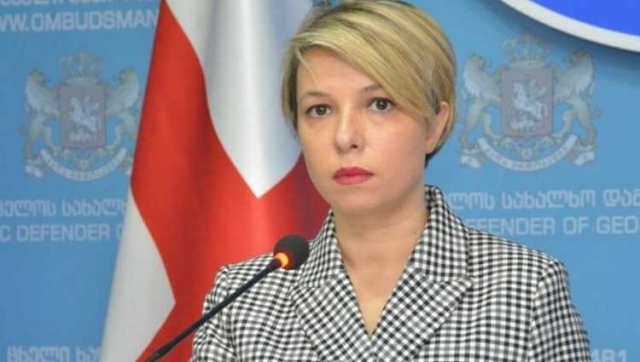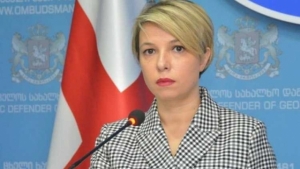Violence in Prisons: Public Defender calls on Authorities to Enhance Management Model
According to the Public Defender’s special report on informal governance and criminal subculture in prisons, it has become even more difficult for representatives of the Public Defender's Office to carry out visits and monitoring, Public Defender Nino Lomjaria announced today.
“There is no violence-free environment in the Georgian penitentiary establishments. This is proven by physical and psychological violence among inmates, criminal subcultures, and lengthy and often inappropriate use of solitary confinement, to name a few. Psychological violence is mainly manifested in extortion, humiliation, marginalization and other violent acts,” reads the report released by the Public Defender following monitoring in Georgia's penitentiary establishments.
Lomjaria said that certain groups of prisoners, managed by the administration of the establishments and the so-called ‘prison watchers’, have been systematically carrying out verbal attacks, threats and aggression against other prisoners and the representatives of the Public Defender's Office.
The systemic and characteristic aspects of each institution were analyzed in a complex manner, based on information obtained during monitoring. One of the main focuses of the monitoring mission was to examine the extent and forms of informal governance in the institutions, as it poses a serious threat to prisoners’ ill-treatment, which leads to violence and oppression.
“As representatives of the Public Defender, during their visits to prisons, face real threats from ‘informal governors’ supported by prison administrations, the Public Defender is considering the possibility of conducting preventive monitoring visits only under additional security measures. Naturally, the Office will continue to hold individual meetings with prisoners,” Lomjaria added.
A criminal subculture is particularly prevalent in semi-open establishments, where informal rulers are privileged and force other prisoners to obey informal rules. It was found that prisoners are not properly aware of their rights and responsibilities, and refuse to exercise their right to complain due to the influence of said criminal subculture and fear of repression.
Nino Lomjaria said: “We identify cases of alleged violence against prisoners and call on the government and investigative agencies to conduct effective investigations in order to monitor the cases and the safety of prisoners. We're talking about assisting prisoners to receive medical services delayed for months or years. We're talking about ill-treatment of prisoners with mental health problems; we're talking about shortcomings in the parole system, and the inconsistency of the decisions made by the commission, to name a few.”
“Given all this, we call on the Georgian governmentto take immediate measures directed at altering the management model of the criminal subculture in prisons. We also call on the Prosecutor's Office of Georgia to launch an investigation into the cases of obstruction and threats against the Public Defender, in connection with which a proposal has already been submitted to the Prosecutor's Office,” she added.
The Public Defender will provide information to the UN Subcommittee on Prevention of Torture (SPT) and the European Committee for the Prevention of Torture (CPT) to visit Georgia in order to protect prisoners’ rights.












